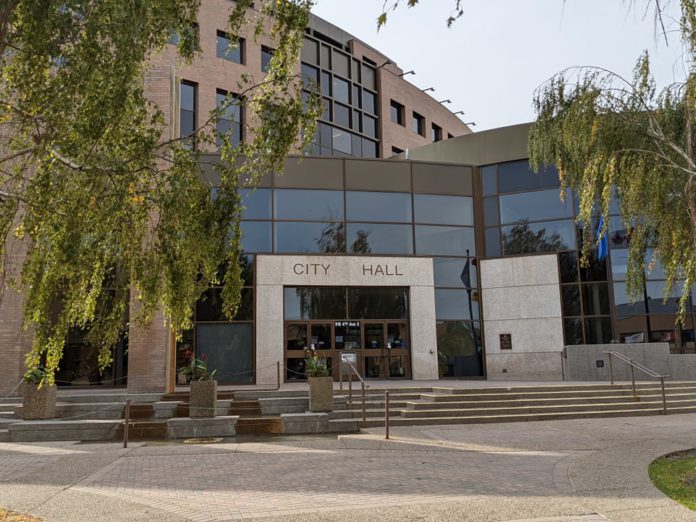The Social Health Equity Network of Lethbridge (SHENLA) and United Way are asking for the city’s support in creating a plan to end poverty in Lethbridge within the next decade. SHENLA is an umbrella organization working with community members and organizations and it is prepared to take the lead.
“We know that poverty has the highest impact, it’s the most influential determinant of health and the cost of poverty are very significant — so doing nothing about poverty still costs a lot of money because of the cascade of effects that happen across the lifetime of children and the impacts at the community level as well,” said Sharon Yanicki, representing SENLA for a presentation to the city’s community safety standing policy committee on Oct. 13. “So by addressing child poverty, we can prevent that cascade of negative impacts across the life course and we can also reduce the cycle of poverty across generations.”
She presented a recent report completed by Helpseeker Technologies, which found poverty, though decreasing in the last 20 years, is still a significant issue in Lethbridge — specifically among youth. It found in 2016, 11.2 per cent residents were living with low income in the Lethbridge census area. Yanicki noted some data is dated in the report and a follow up is needed using 2021 census information to see the effects of the pandemic.
The report also found based on 2019 data, 15.2 per cent of Lethbridge youth aged 0–17 live in low income households. Yanicki said there are some children disproportionately affected by poverty — the low income rate across all ages for Indigneous people is 26.9 per cent and 42 per cent for youth.
“At a community level it is also important to note that children living in poverty are exposed to higher rates of child trauma, adverse childhood experiences, chronic disease, higher rates of addiction over their life course and higher rates of criminal involvement,” she said. “Eliminating poverty is less expensive than ignoring it, this is a really important point for social policy and all of our children in our community should have opportunities for health and wellbeing.”
The presentation included recommendations to implement municipal social policies, such as low income bus passes and implementing a living wage for all city employees and contractors. Mike Fox, director of community services for the city, said an initiative is coming forward to potentially add to the fee assistance program and provide seniors and youth with free bus passes. This will be discussed by council later.
The committee accepted the report for information and no members of the public wished to speak on the item at the meeting.






